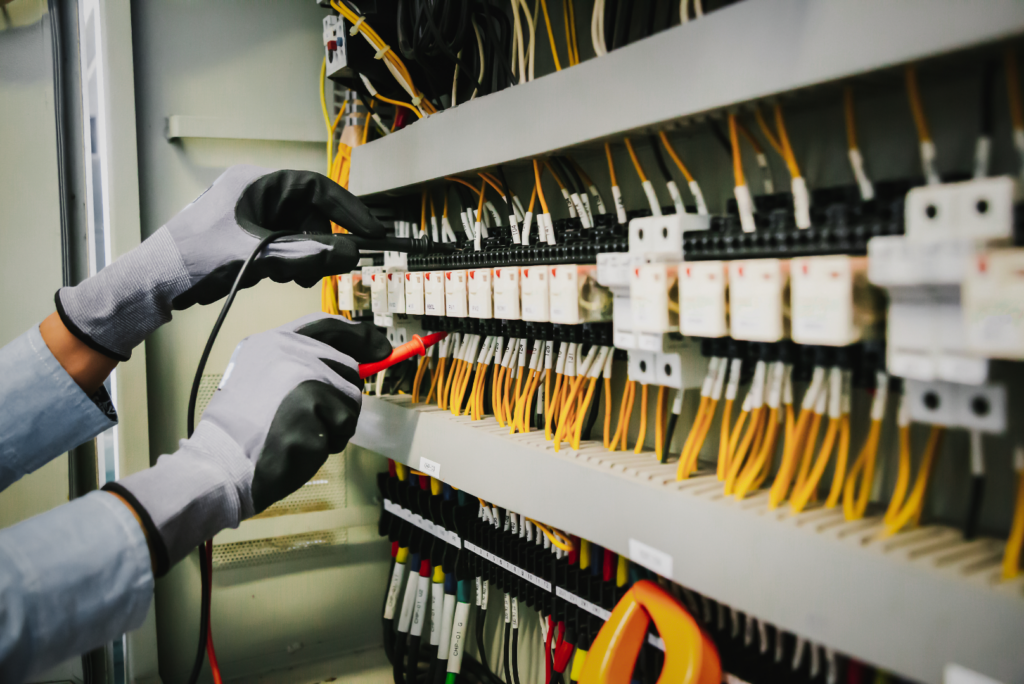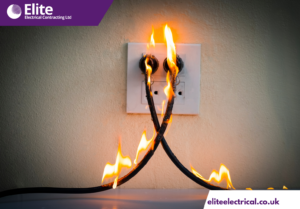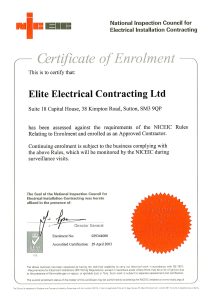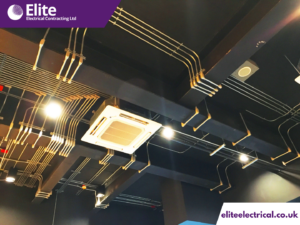The Importance of Electrical Codes and Standards
In the complex world of commercial property management, ensuring compliance with electrical codes and standards is not just a legal requirement but a critical component of maintaining safety, reliability, and efficiency. These regulations are designed to protect buildings, businesses, and their occupants from electrical hazards that can lead to serious accidents, including fires and electrical shocks. Adherence to these standards is also essential for safeguarding the property’s value and operational capabilities.
The Role of Commercial Electricians in Compliance
Commercial electricians play a pivotal role in this context. They are the experts who interpret, apply, and ensure compliance with these ever-evolving standards. Their expertise helps businesses navigate the intricate web of national and local regulations, ensuring that all electrical systems are up to code and capable of passing stringent inspections. By staying current with the latest amendments in electrical safety codes, commercial electricians provide an invaluable service, ensuring that commercial properties not only meet legal requirements but also offer a safe working environment for all occupants.
Overview of Key Electrical Codes and Standards for Commercial Properties
National Standards: The UK Wiring Regulations
The cornerstone of electrical standards in the UK is BS 7671, also known as the 18th Edition of the IET Wiring Regulations. This comprehensive standard governs electrical installation and wiring safety across domestic, commercial, and industrial properties. It covers circuits up to and including 1000V AC or 1500V DC, including Extra Low Voltage (ELV) and Low Voltage (LV) ranges. Key updates in the latest amendment include provisions for energy efficiency, the inclusion of arc fault detection devices, and surge protection measures. These regulations are crucial for ensuring safety and compliance in electrical installations
Local Regulations: Variations and Importance
While BS 7671 sets the national framework, local variations may exist, particularly in terms of enforcement and additional local codes that complement the national standards. It’s important for commercial electricians and property owners to be aware of and adhere to these local specifics to ensure full compliance and safety. The understanding of local regulations helps in navigating the requirements that might vary from one municipality to another
Industry-Specific Standards: Tailored Requirements
Different industries may have specific electrical requirements based on their operational needs. For example, the healthcare sector and hospitality industry have unique standards to cater to their specific safety, reliability, and operational efficiency needs. These standards address the particular risks and technological demands of each sector, ensuring that the electrical installations not only comply with general regulations but also align with industry-specific practices
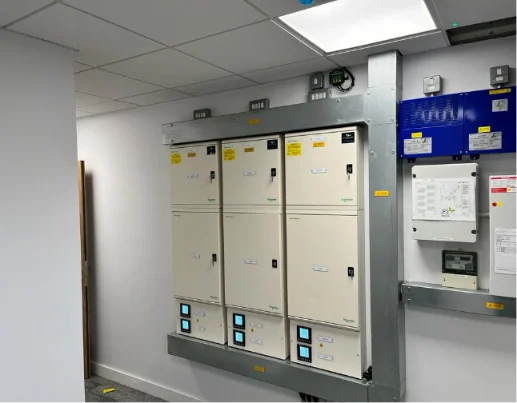
How Commercial Electricians Ensure Compliance with These Codes
Regular Training and Certification
Continuous education is essential for commercial electricians to remain compliant with evolving standards and regulations. Through regular training programs and certification courses, electricians are kept up-to-date on the latest editions of standards like BS 7671 and other relevant industry-specific regulations. These training sessions not only cover theoretical knowledge but also practical applications, ensuring electricians understand both the “how” and the “why” behind each standard. Certification, such as the 18th Edition qualification, serves as proof of their up-to-date knowledge and commitment to compliance
Inspections and Audits
Regular inspections and audits are another critical method by which commercial electricians ensure ongoing compliance and safety. These checks help identify any deviations or non-compliances in electrical installations at commercial properties. By conducting these routine audits, electricians can address potential issues before they become significant hazards, ensuring that all electrical systems meet safety standards and function efficiently. This proactive approach not only mitigates risk but also helps maintain the integrity of a property’s electrical infrastructure
Coordination with Local Authorities
Working alongside local authorities is crucial for ensuring that all electrical work complies with local and national regulations. Commercial electricians often coordinate with these bodies to secure necessary permits and undergo routine inspections required by law. This collaboration helps ensure that all installations and repairs are documented and approved, thereby maintaining high standards of safety and compliance. This partnership also facilitates a smoother process of meeting regulatory requirements and obtaining certifications that may be necessary for specific projects
Importance of Staying Up-to-Date with Electrical Regulations
Safety
Keeping up-to-date with electrical regulations is crucial for maintaining safety in commercial environments. Knowledge of current safety standards helps electricians implement the safest and most effective solutions, reducing the risk of accidents and ensuring the welfare of both workers and the public. This ongoing education in safety standards directly contributes to creating a safer working environment in commercial properties
Legal Obligations
Compliance with electrical regulations is not just a best practice; it’s a legal requirement. Staying informed about the latest regulations helps commercial electricians avoid legal penalties, which can include fines and other sanctions. Knowledge of these obligations ensures that all electrical work is up to code, which is crucial not only for safety but also for the legal viability of electrical installations within commercial properties
Technology and Innovation
As technology advances, electrical standards and regulations must evolve to accommodate new innovations and techniques. Commercial electricians who stay current with these changes are better equipped to integrate new technologies into their projects, such as energy-efficient systems and smart electrical solutions. This adaptability not only ensures compliance but also enhances the functionality and sustainability of electrical installations, keeping commercial properties at the forefront of electrical technology and innovation
Consequences of Non-Compliance and How to Avoid Them
Legal and Financial Risks
Failing to comply with electrical codes can lead to significant legal and financial consequences for businesses. Penalties can range from fines and sanctions to more severe legal actions depending on the extent of the non-compliance. In the UK, breaches of the Electrical Safety Standards can attract fines up to £30,000. in addition, non-compliance can lead to liability issues in the event of accidents or injuries, potentially resulting in lawsuits or insurance claims that can further strain financial resources
Operational Disruptions
Non-compliance with electrical codes can cause operational disruptions. For instance, if an electrical system fails to meet safety standards, it might need to be shut down until it complies with legal requirements. This can lead to significant downtime for businesses, affecting productivity and causing financial losses. In severe cases, prolonged non-compliance can even lead to permanent business closures, especially if the infractions involve critical safety violations that pose immediate risks to building occupants
Preventive Measures: Tips for Ensuring Compliance
- Regular Electrical Inspections: Schedule regular inspections by qualified electricians to ensure all systems and installations comply with current electrical codes and standards.
- Stay Informed: Keep abreast of any updates or changes in the electrical regulations. This can involve subscribing to updates from the IET or relevant regulatory bodies and participating in industry workshops and seminars.
- Hire Certified Professionals: Ensure that all electrical work is carried out by certified professionals who are members of recognized competent person schemes. This not only ensures compliance but also enhances the quality and safety of electrical installations.
- Implement a Compliance Checklist: Develop and maintain a compliance checklist based on the latest standards and regulations. Use this checklist to audit existing installations and new projects regularly.
- Invest in Training: Invest in regular training for maintenance staff and electricians to keep them up-to-date with the latest electrical safety practices and standards.
- Documentation and Record Keeping: Maintain thorough records of all electrical installations and repairs, including details of inspections, testing, and compliance checks. This documentation can be crucial in demonstrating compliance during inspections by authorities or in the event of a legal dispute
By adhering to these preventive measures, businesses can mitigate the risks associated with non-compliance and ensure that their commercial properties remain safe, legal, and operational.
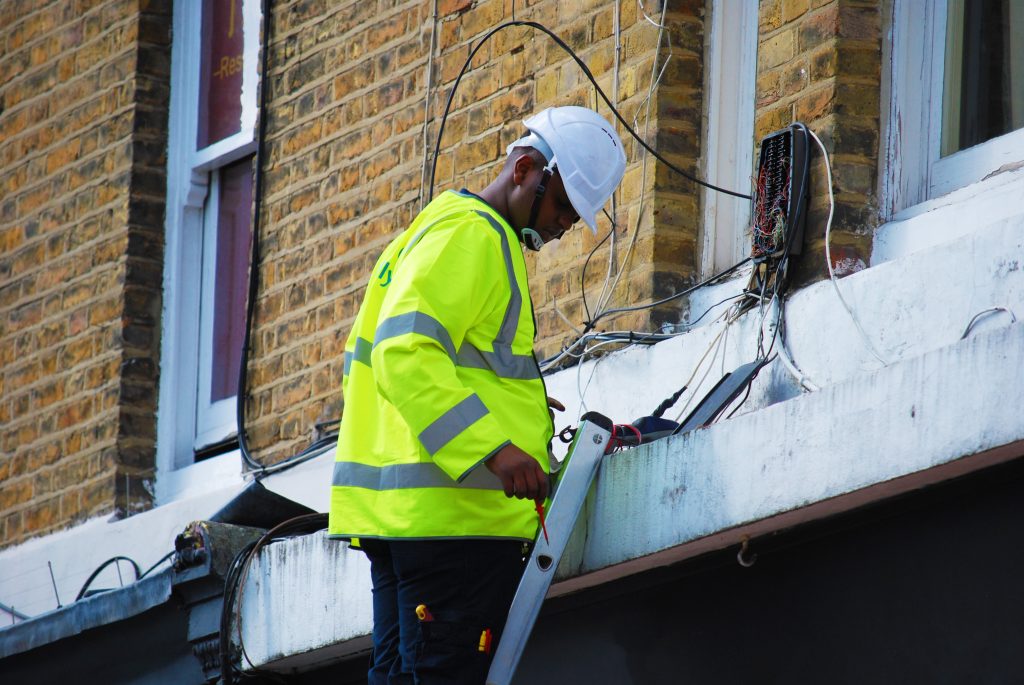
Conclusion
Understanding and adhering to electrical codes and standards is crucial for maintaining safety, legality, and operational efficiency in commercial properties. These guidelines are meticulously designed to protect buildings, and their occupants, and ensure the infrastructure supports modern commercial activities effectively. Compliance prevents potential legal issues and financial losses and secures the physical and operational integrity of business environments.
For property owners and managers, it is essential to engage with skilled commercial electricians who are proficient in the latest electrical standards. These professionals are pivotal in navigating the complex landscape of electrical compliance, ensuring that installations and systems are not only up to code but also optimised for safety and efficiency.
If your commercial property needs assessment or you aim to ensure your operations comply with all electrical regulations, consider consulting with professional commercial electricians. By choosing expert services, you can enhance your property’s safety and operational capacity.
Take Action: Contact Elite Electrical Contracting Ltd
For professional guidance and comprehensive electrical services, contact Elite Electrical Contracting Ltd:
Elite Electrical Contracting Ltd
- Address: 30 Upper Mulgrave Road, Sutton, Surrey, SM2 7BD
- Phone: 020 8644 3200
- Fax: 020 8644 3300
- Email: [email protected]
Don’t hesitate to reach out. Our team is ready to assist you in ensuring your property meets all required electrical standards and regulations.

